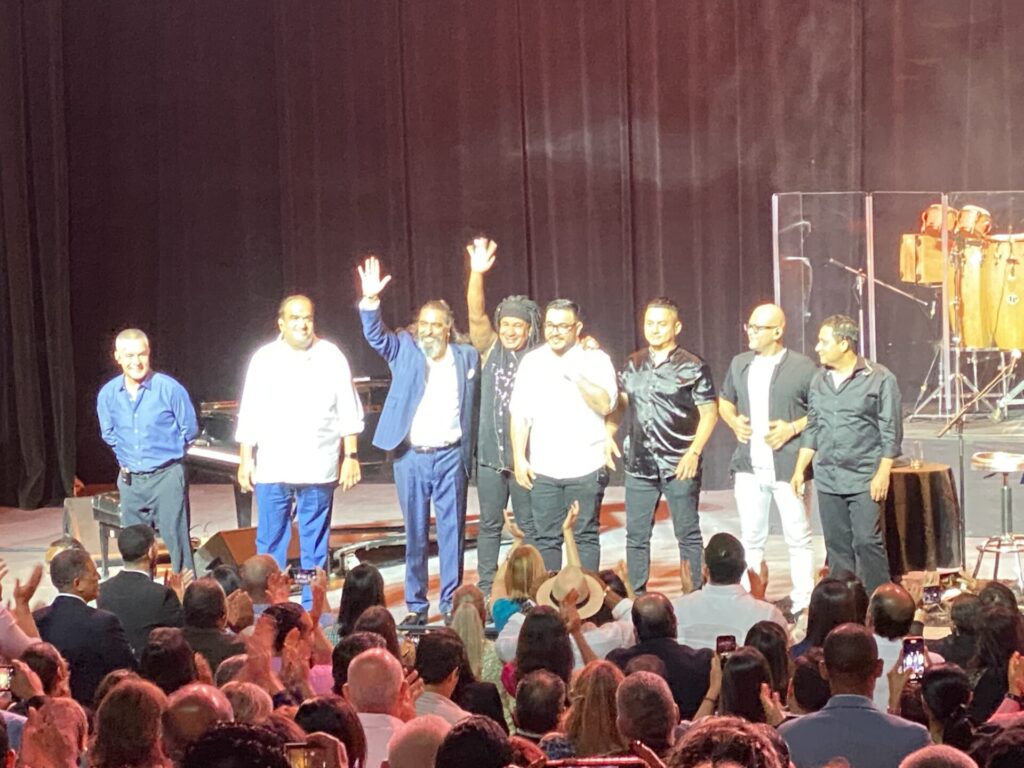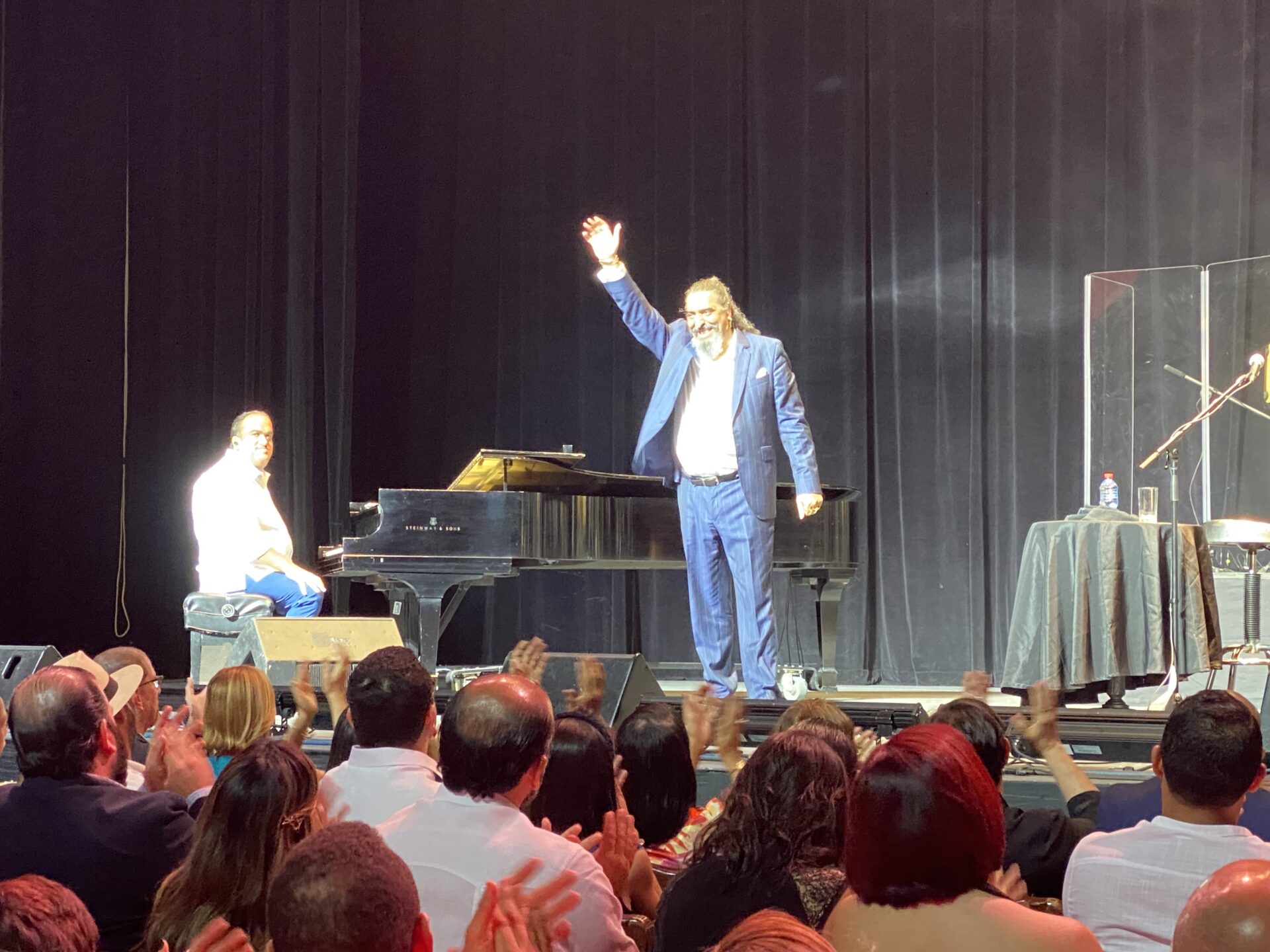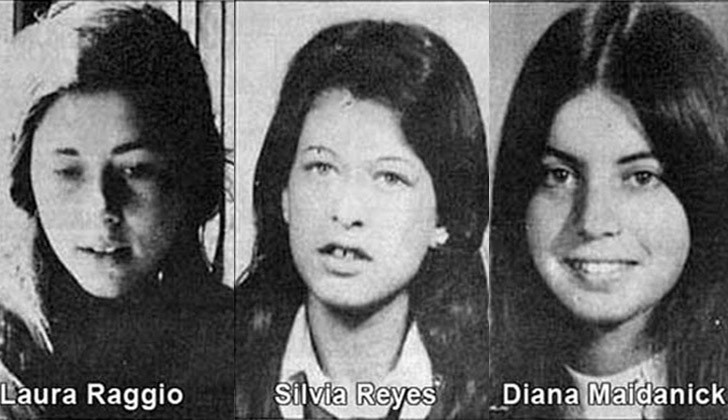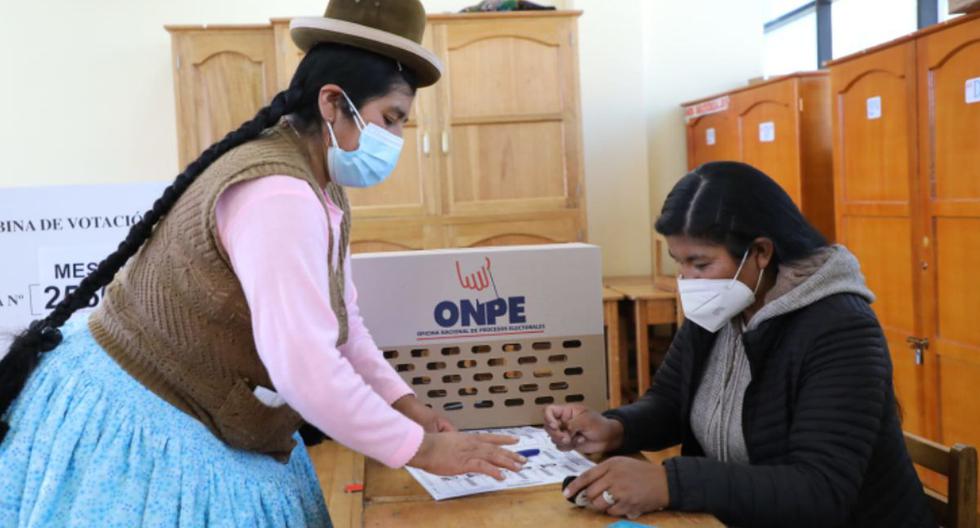Thursday night, Diego the Cigala was presented once again at the Eduardo Brito National Theater in the Dominican capital. It had been three years since he had “come down” to Santo Domingo from Punta Cana, where he lives.
The show, a local production by César Suárez Pizano, this time featured part of the Cali Big Band with whom he recorded one of his most recent albums (Indestructible), where he fused salsa with flamenco. And as always, he had his faithful squire Jumitus Calabuch at the piano. The man who did not study music but is one of the best tropical music pianists I have ever heard. The one who knows, just by looking at him and his friend, what to do on the piano or what song to play.
Diego was happy. Very happy. At times too happy. I am brownfrom your disk Indestructible, opened the delivery of a run down with 40% improvisation on stage. The song is by Puerto Rican Francisco Alvarado “Chalina” and belonged to the repertoire of Sonora Ponceña and Bobby Valentín.
“Good evening, Santo Domingo,” Cigala said, repeating it. They applauded him, he said it at least once or twice more throughout the concert.
People are still late for the theater. A foreign man entered wearing white shorts and a wide-brimmed hat. In the end he told this newspaper that in France he enters the theater as he wants to be dressed. Which is not true.
crayfish sang If i tell you, a boleraso of the unforgettable friend and director of the América orchestra, Félix Reina, who died in Havana in 1998 and who would have turned 101 on May 21. That was one of the best performances of the night, especially since Jumitus turns the piano into an orchestra. At times there was a lack of filling in the other instruments. But people applauded the theme.
In Love and liveof Consuelo Velazquez (the same as Kiss Me a lot), Jumitus begins with the piano. The theme included three brass solos. Something that became a wild card for the artist to lengthen the songs. And that logically showed, although not virtuosity, interpretive quality in the trumpeter and in the slide trombone, which used with a mute eventually gave that special sonority.
Richard Egüez, the legendary flautist of the Aragon Orchestrawas the composer -among others as The winemaker, Sabrosona, The cuini (has a flag), Gladys, Queen Elizabeth-, of The Passage of Encarnaciona theme that had an acceptable evolution on stage, but that was somewhat blurred due to the fact that the entrance was forced to do it in an unusual tone.
In this very select tour of Cuban music, Cigala did not leave out Twenty years by the unforgettable Cuban troubadour María Teresa Vera, the best performed to date. Then he left the scene, glass in hand, which produced a murmur in the audience, who applauded him when he returned and asked him what he was drinking. “Share,” someone yelled at him.
The journey continued with black tears, by Miguel Matamoros (lyrics and music by the Cuban), to which the public responded well. At the end, Diego El Cigala got up and applauded the musicians from Cali, who came out.
He was left alone with Jumitus to sing I love you I love you, the theme with lyrics by the poet Rafael de León, popularized by the late Nino Bravo. There she had the choir of the public. In the end he stood up and agreed something with the pianist. Lonelinessby the composer Enrique Fabregat Jodar, belonging to the winner of a Latin Grammy, Norway lobster & Tango. Another one of the best performances. much applauded. Y Our love was brokenby Manuel Alexander.
The orchestra returned and delivered a bolero written by Richard Dannenberg and popularized in Spain in the 1940s by the great Antonio Machín, Crazy Heartwhich also included a trombone solo. I like, by Armando Manzanero, began with just the piano. Makeshift. Then came bass and percussion. And a trumpet solo, and another for double bass. Thing that was emerging on the scene. Suddenly Cigala got into the spirit of I try to forget you (also by Manuel Alejandro) and then returned to I like. She did it commendably. In the applause she entered the subject of Roberto Carlos Dude (You are my soul brother…. ) The audience clapped and stood up. Sometimes he forgot the lyrics, perhaps because of so much… contentment.

The tango Throat with sand of the Argentinian Cacho Castaña, gave way to the theme Indestructible, already with confused lyrics and tempo problems at the beginning of the song. However, she lifted slowly and delivered a fiery discharge of percussion. He said goodbye. They left the scene. Soon they came back with Two gardenias, from the also unforgettable Isolina Carrillo. And in the encore of encores she came back with black tearsagain and The well paidby Juan Mostazo Morales, and some other songs.
The concert was not the best of Diego el Cigala. Perhaps the excess of improvisation and the lack of rehearsals contributed against this. The permanent communication with the sound engineer through the microphone open to the public, and the excess of… contentment, for a concert at the National Theater, detracted from the color. Perhaps at the Teatro la Fiesta, where the venue It’s more about parties and drinks, it would have been normal. But the Dominican major stage includes a bit of solemnity that is difficult to refrain from.
But we cannot forget that Diego El Cigala is the most Latin of flamenco artists. And he is the most flamenco of Latin artists. Spot. There comes a flamenco album, and for a long time he has talked about trying to fuse bachata. He is as Spanish as he is Dominican. Another point. And finally.















